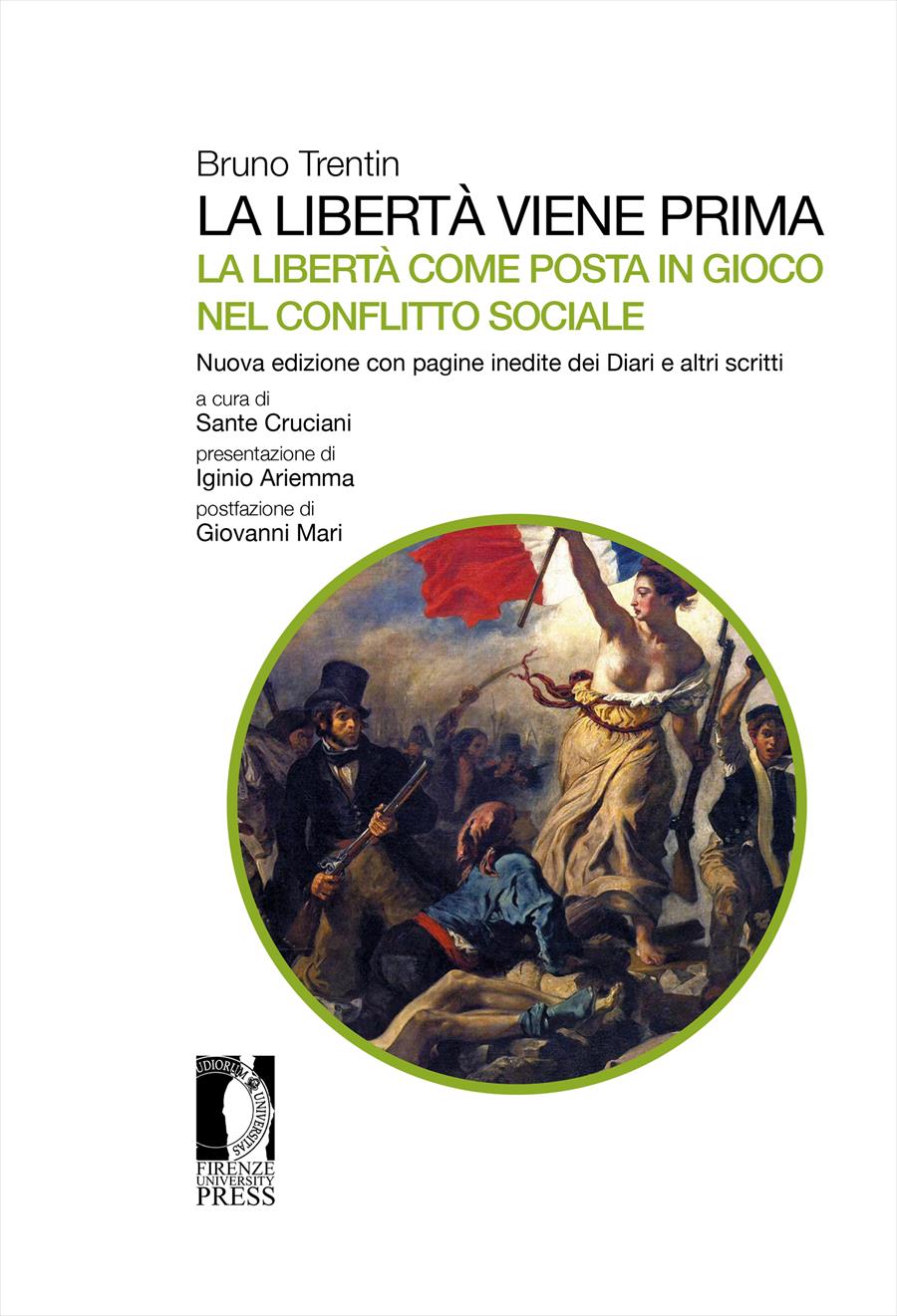Postfazione. Il socialismo di Bruno Trentin come liberazione della persona
- Giovanni Mari
- © 2021 Author(s) |
- CC BY 4.0
- DOI: 10.36253/978-88-5518-282-9.05
Through the commentary on a particularly interesting period taken from the Introduction to La libertà viene prima, the author intends to focus on Bruno Trentin's idea of socialism. Giovanni Mari underlines how this idea foresees the critique of four theses of the modern socialist tradition: 1) socialism is not a model of society, but a continuous process; 2) in our company the company does not constitute a world in itself; 3) the socialization of property does not solve the problems of democracy; 4) the center of civil coexistence is not constituted by the class but by the person. And four positive theses: 1) the form of political action does not foresee two separate times, first the seizure of power and then the reforms; 2) the measure of society is the freedom of the person; 3) the goal of the socialist process is the self-realization of the person; 4) everything begins with the person who works, that is, with the battle for freedom in work.
- Keywords:
- Socialism,
- Freedom,
- Work,
University of Florence, Italy - ORCID: 0000-0001-6045-968X
- Bodei R. 2019, Dominio e sottomissione, il Mulino, Bologna.
- Gramsci A. 1917, La Rivoluzione contro il Capitale, «Avanti», 24 novembre.
- Lukács G. 1997, Storia e coscienza di classe, SugarCo, Milano.
- Mari G. 2019, Libertà nel lavoro. La sfida della rivoluzione digitale, il Mulino, Bologna.
- Marx K., Engels F. 1972, Ideologia tedesca, in Id., Opere, V, Editori Riuniti, Roma.
- Popper K. 1981, Miseria dello storicismo, Feltrinelli, Milano.
- Popper K. 1986, La società aperta e i suoi nemici, Armando, Roma.
- Rousseau J.J. 1994, Discorso sulla disuguaglianza, in Id., Scritti politici, 3 voll., Laterza, Roma-Bari.
- Scheler M. (1988), Lo spirito del capitalismo e altri saggi, Guida, Napoli.
- Schumpeter J. (1993), L’imprenditore e la storia dell’impresa, Boringhieri, Torino.
- Sen A. (1999), Lo sviluppo è libertà, Mondadori, Milano.
- Sombart W. 1983, Il borghese, Longanesi, Milano.
- Tönnies F. 2011, Comunità e società, Laterza, Roma-Bari.
- Trentin B. 1994, Il coraggio dell’utopia, Intervista a B. Ugolini, Rizzoli, Milano.
- Trentin B. 2004, La libertà viene prima. La libertà come posta in gioco nel conflitto sociale, Editori Riuniti, Roma.
- Trentin B. 20142, La città del lavoro. Sinistra e crisi del fordismo, Firenze University Press, Firenze (ed. orig. Feltrinelli, Milano 1997).
- Trentin B. 2017, Diari 1988-1994, a cura di I. Ariemma, Ediesse, Roma.
- Weber M. 2002, L’etica protestante e lo spirito del capitalismo, in Id., Sociologia della religione, Edizioni di Comunità, Milano.
Informazioni sul capitolo
Titolo del capitolo
Postfazione. Il socialismo di Bruno Trentin come liberazione della persona
Autori
Giovanni Mari
Lingua
English
DOI
10.36253/978-88-5518-282-9.05
Opera sottoposta a peer review
Anno di pubblicazione
2021
Copyright
© 2021 Author(s)
Licenza d'uso
Licenza dei metadati
Informazioni bibliografiche
Titolo del libro
La libertà viene prima. La libertà come posta in gioco nel conflitto sociale
Sottotitolo del libro
Nuova edizione con pagine inedite dei Diari e altri scritti
Curatori
Sante Cruciani
Autori
Bruno Trentin
Opera sottoposta a peer review
Numero di pagine
292
Anno di pubblicazione
2021
Copyright
© 2021 Author(s)
Licenza d'uso
Licenza dei metadati
Editore
Firenze University Press
DOI
10.36253/978-88-5518-282-9
ISBN Print
978-88-5518-281-2
eISBN (pdf)
978-88-5518-282-9
eISBN (epub)
978-88-5518-283-6
Collana
Studi e saggi
ISSN della collana
2704-6478
e-ISSN della collana
2704-5919
